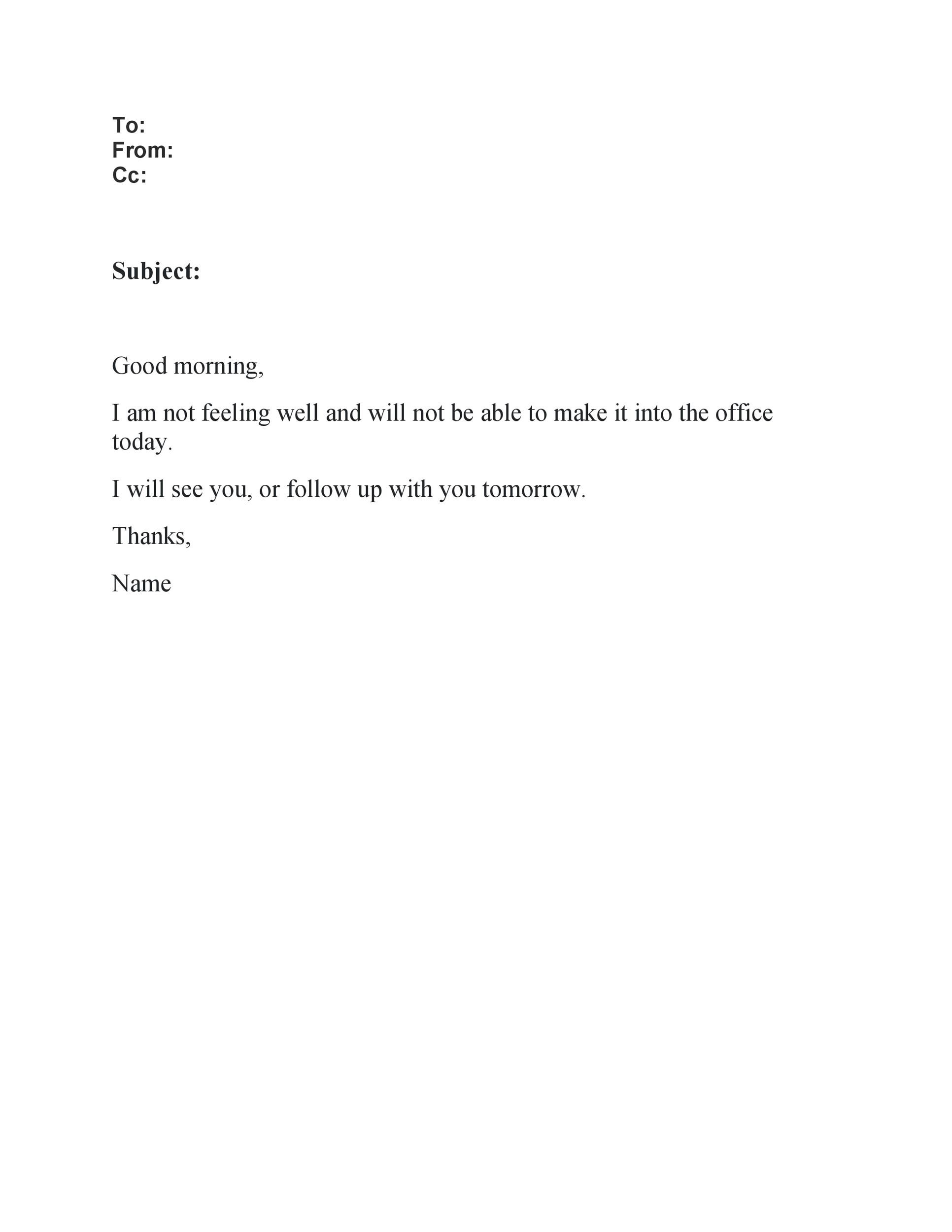In sick day email, mention specific hours shifts can't cover suggest potential solutions, as colleague could cover you. shows you're responsibility your work makes easier your manager approve time off. Part 3 Sick Leave Email Template Part-Time Hourly Employees
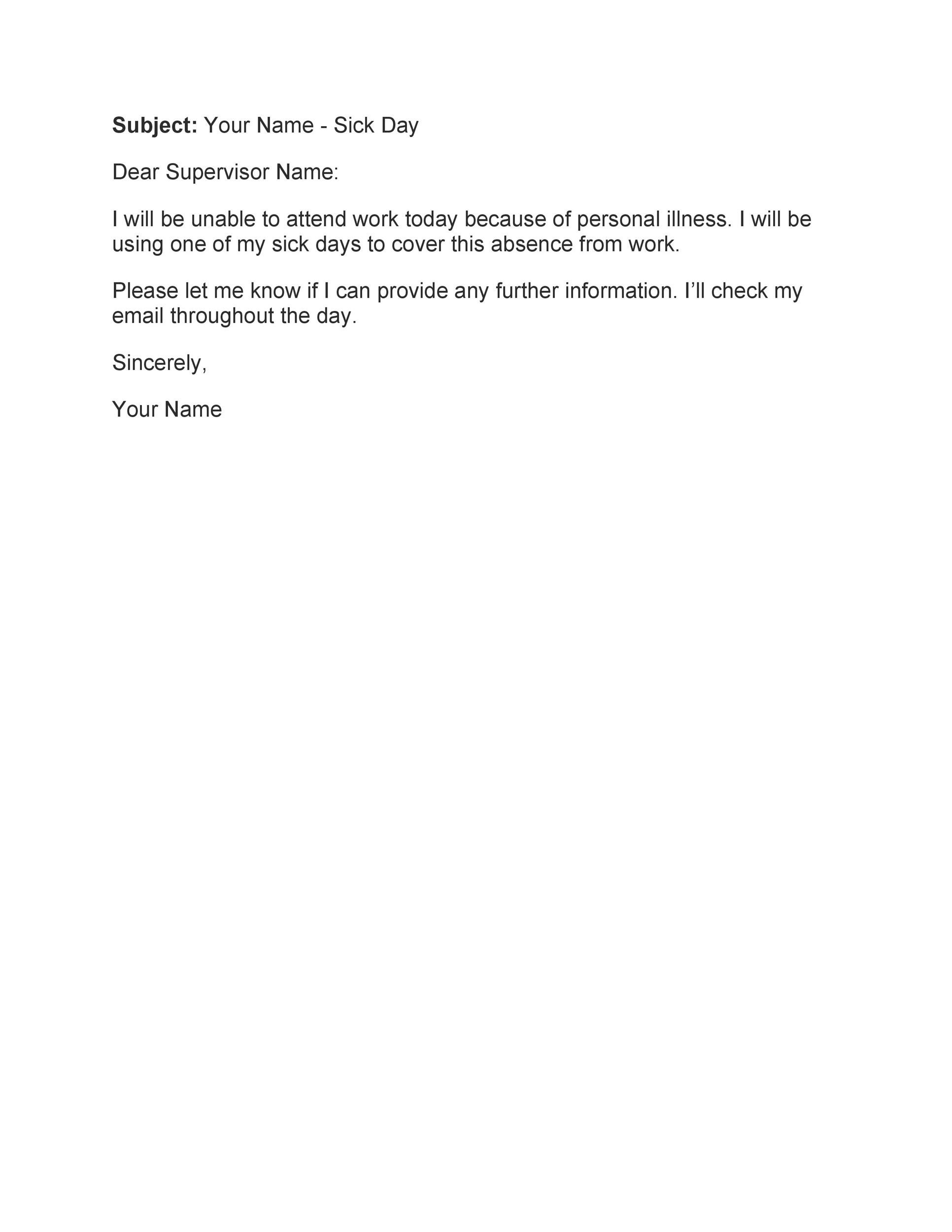 Sick Leave Email Template. Subject: Sick Leave Request. Dear [Manager's Name], am writing inform that am feeling unwell will to sick leave [start date] [end date]. have experiencing [brief symptoms] believe is for recovery the wellbeing the team I some time off.
Sick Leave Email Template. Subject: Sick Leave Request. Dear [Manager's Name], am writing inform that am feeling unwell will to sick leave [start date] [end date]. have experiencing [brief symptoms] believe is for recovery the wellbeing the team I some time off.
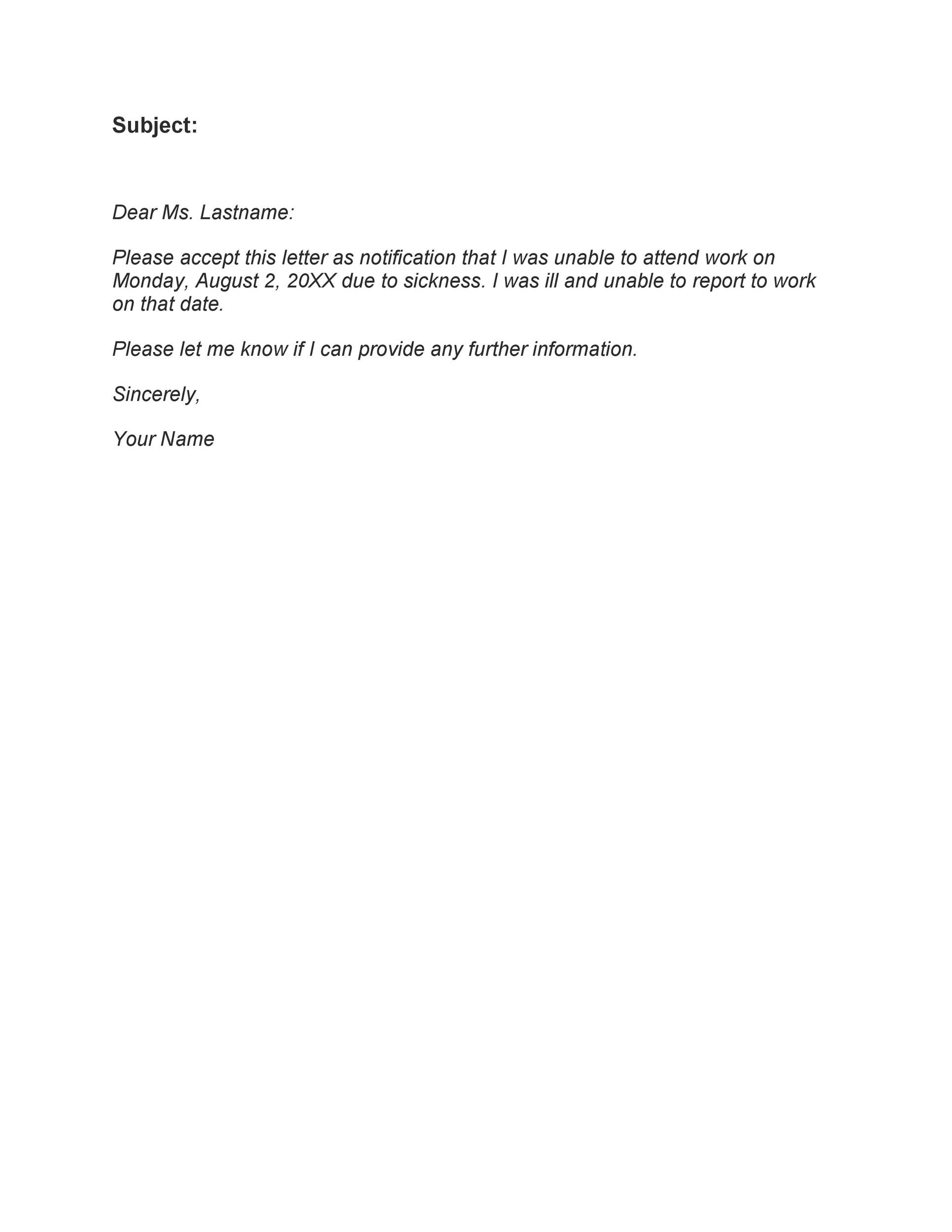 OPTION 2: short sick day leave email sample. can refer this email template you someone doesn't wasting many words. Example: Hey Adam, accept written notification my absence June 9, 20XX. am unable attend work due sickness. I provide additional information, let know.
OPTION 2: short sick day leave email sample. can refer this email template you someone doesn't wasting many words. Example: Hey Adam, accept written notification my absence June 9, 20XX. am unable attend work due sickness. I provide additional information, let know.
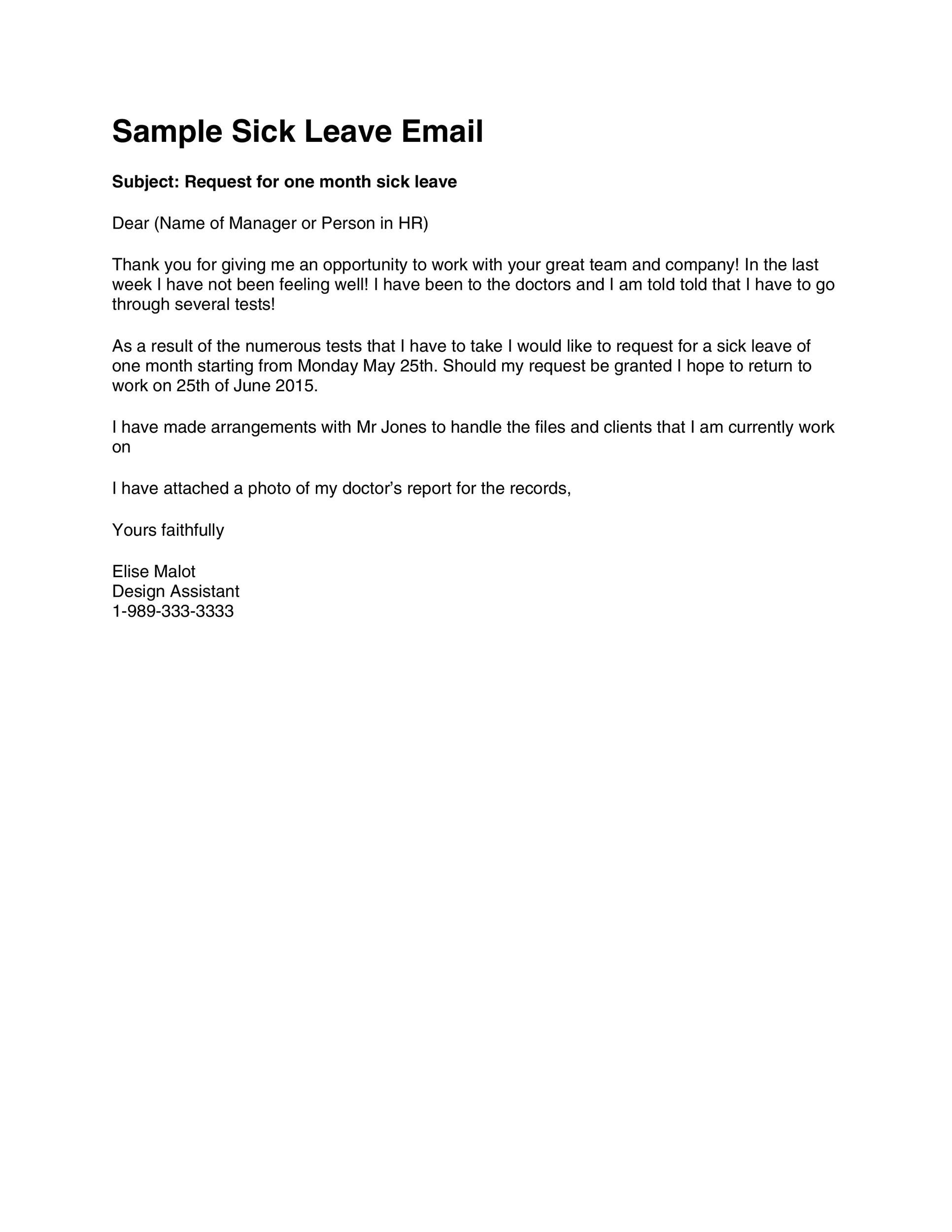 Below simple sick leave email formats you send your manager approval. Sick Leave Email Manager One Day (Sample 1) Sub: Sick leave request. Dear Sir/Madam, am feeling today (19th Sep 2024) due a fever. Kindly grant sick leave today. will resume work tomorrow.
Below simple sick leave email formats you send your manager approval. Sick Leave Email Manager One Day (Sample 1) Sub: Sick leave request. Dear Sir/Madam, am feeling today (19th Sep 2024) due a fever. Kindly grant sick leave today. will resume work tomorrow.
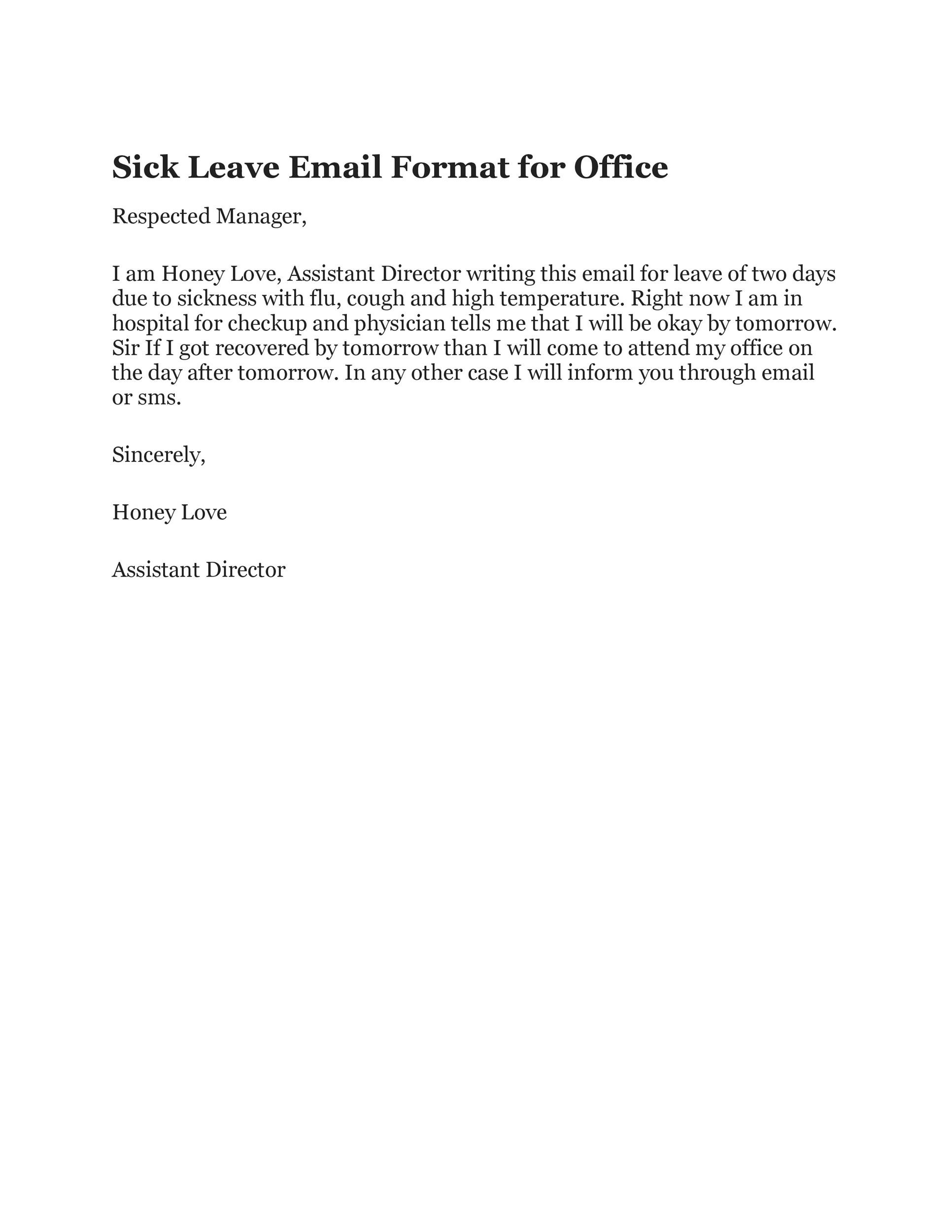 1. Subject line: Place simple & short subject line as "leave request due fever" (or) "leave application due [sickness reason]". 2. Reason Sickness: Write exact reason your sickness the mail, it fever, headache, stomachache, vomiting, loose motions, cough, etc. 3. Intimate early possible: Send leave request your boss early .
1. Subject line: Place simple & short subject line as "leave request due fever" (or) "leave application due [sickness reason]". 2. Reason Sickness: Write exact reason your sickness the mail, it fever, headache, stomachache, vomiting, loose motions, cough, etc. 3. Intimate early possible: Send leave request your boss early .
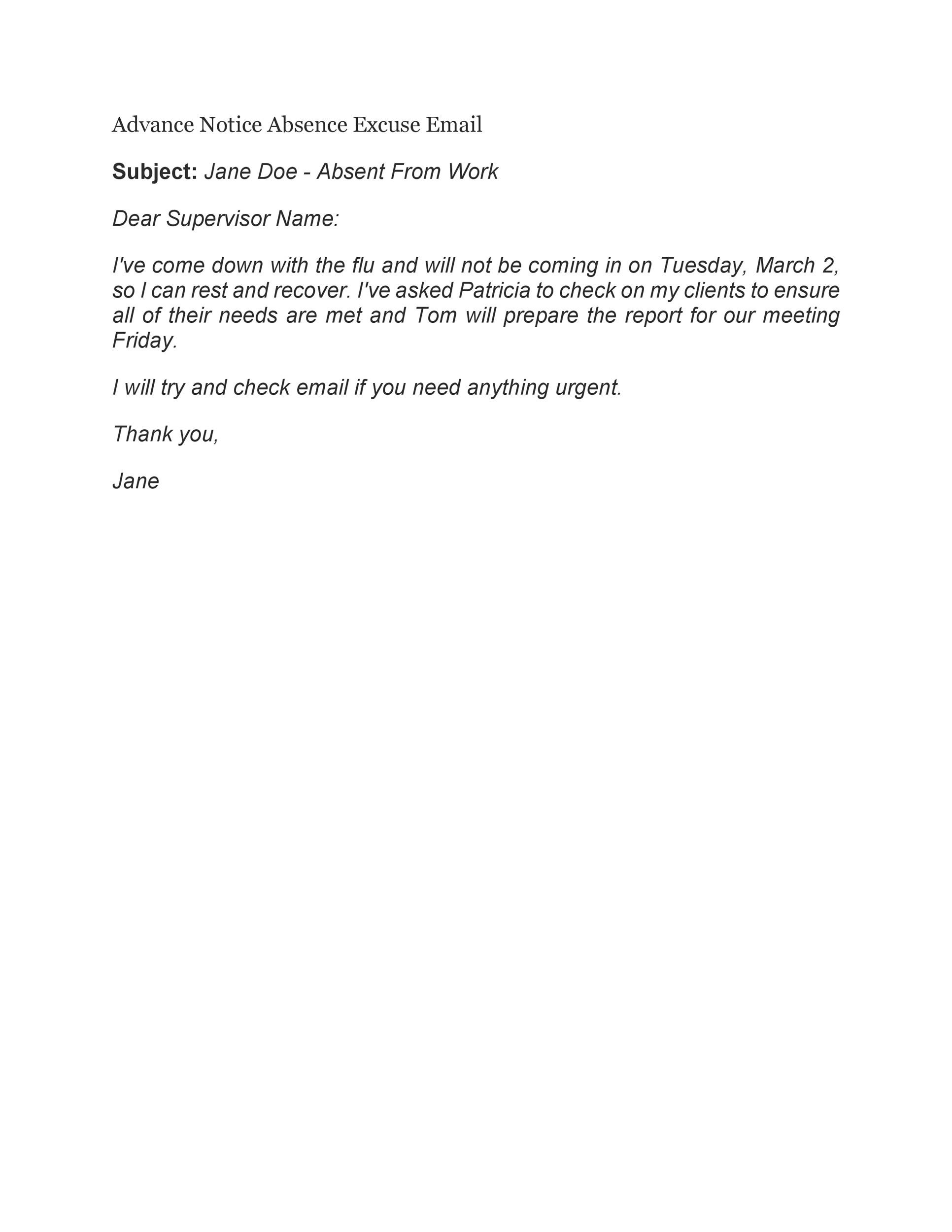 Key Takeaways. Understand essential components a short sick leave email. Learn step-by-step process write effective email. Free Template: Access customizable template your convenience. Gain insights how communicate effectively friends your sick leave.
Key Takeaways. Understand essential components a short sick leave email. Learn step-by-step process write effective email. Free Template: Access customizable template your convenience. Gain insights how communicate effectively friends your sick leave.
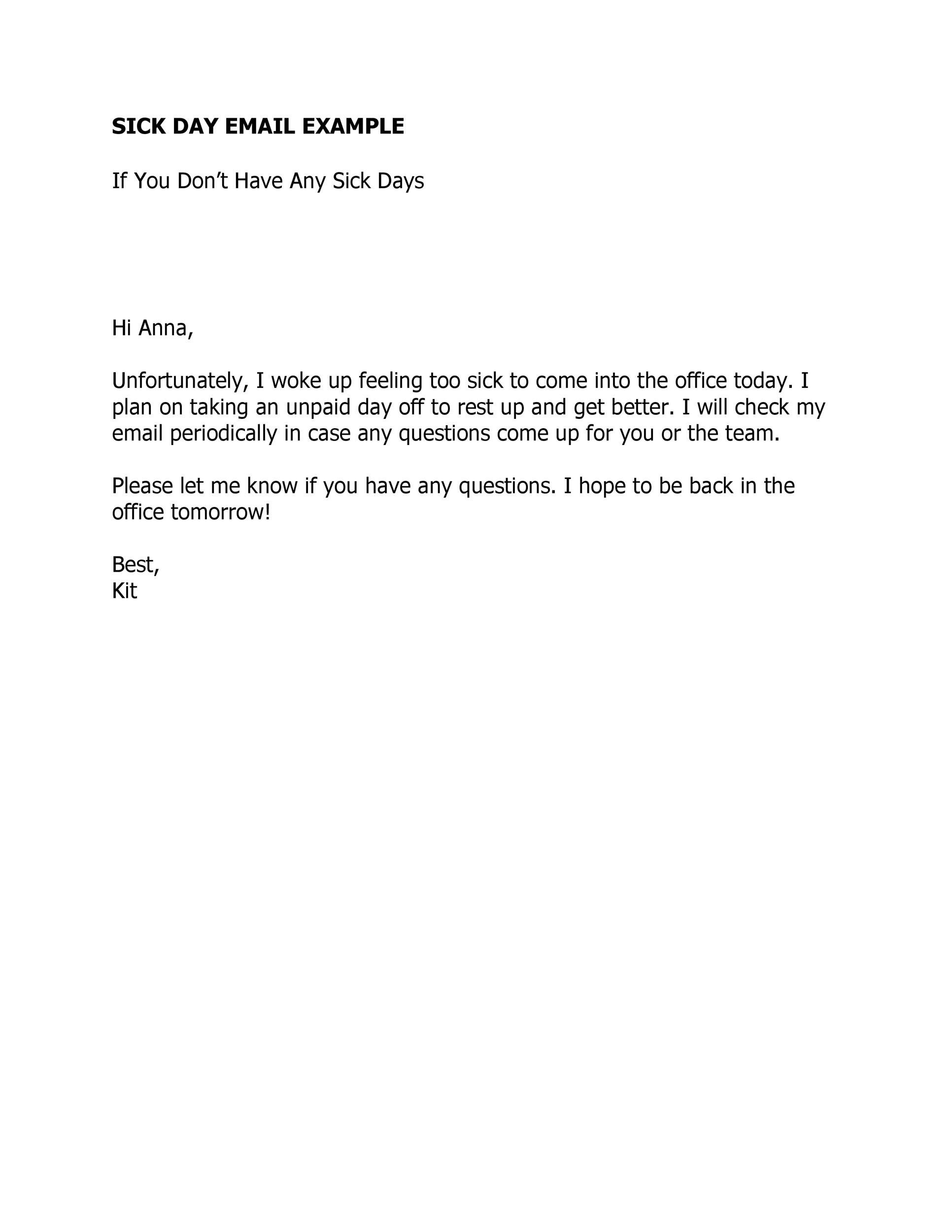 Sick Day Sample Email 4 (Paid Leave): , Unfortunately, woke this morning feeling ill. have symptoms, I'd to the day to recover possibly visit doctor. plan use 1 day my sick leave. apologize any disruption causes the team. I'll check emails the day, you call .
Sick Day Sample Email 4 (Paid Leave): , Unfortunately, woke this morning feeling ill. have symptoms, I'd to the day to recover possibly visit doctor. plan use 1 day my sick leave. apologize any disruption causes the team. I'll check emails the day, you call .
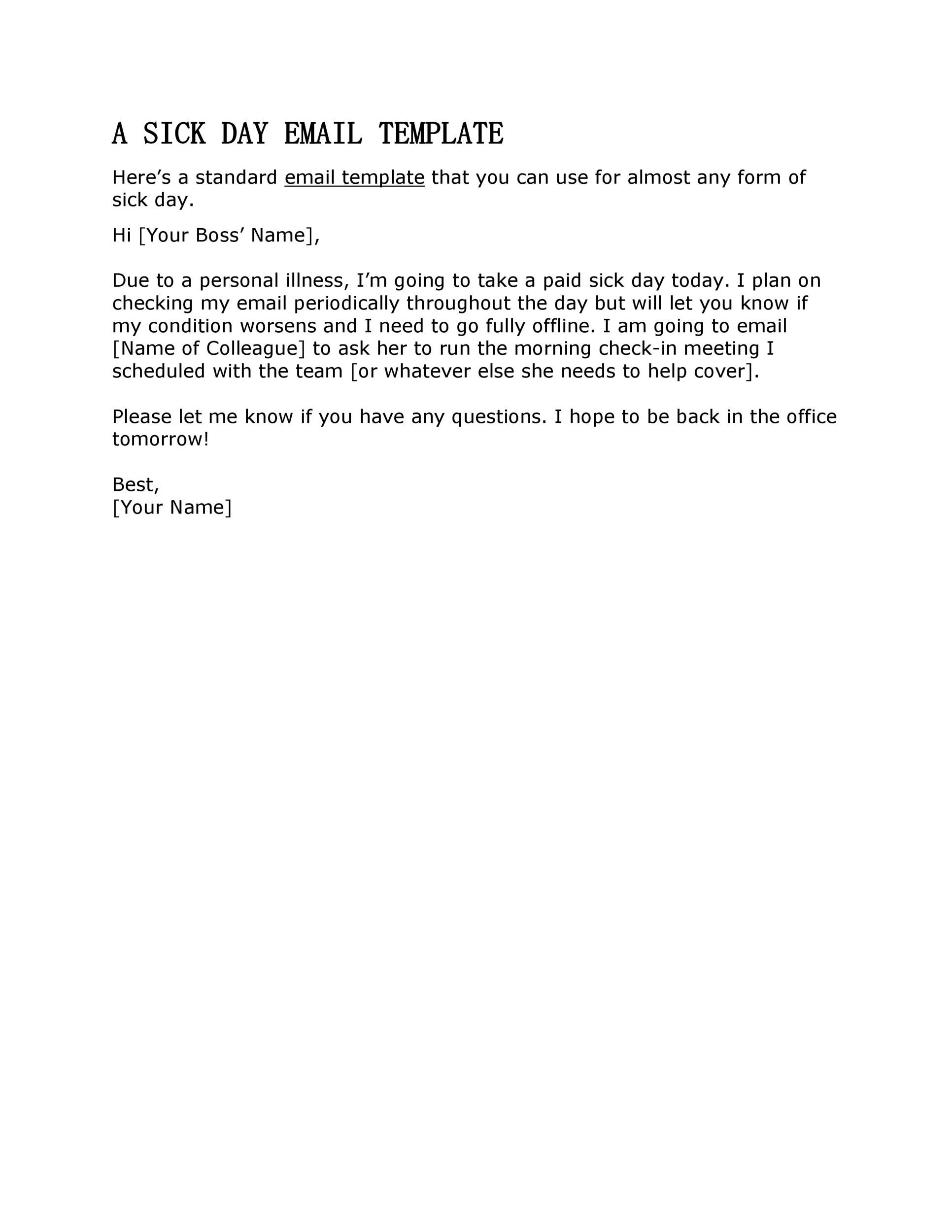 Your subject line immediately convey reason the email. straightforward subject line helps employer quickly understand nature your email. are few examples: "Sick Leave Request" "Out Sick Today" "Medical Leave Notification" Step 3: Start a Polite Greeting. your email a professional .
Your subject line immediately convey reason the email. straightforward subject line helps employer quickly understand nature your email. are few examples: "Sick Leave Request" "Out Sick Today" "Medical Leave Notification" Step 3: Start a Polite Greeting. your email a professional .
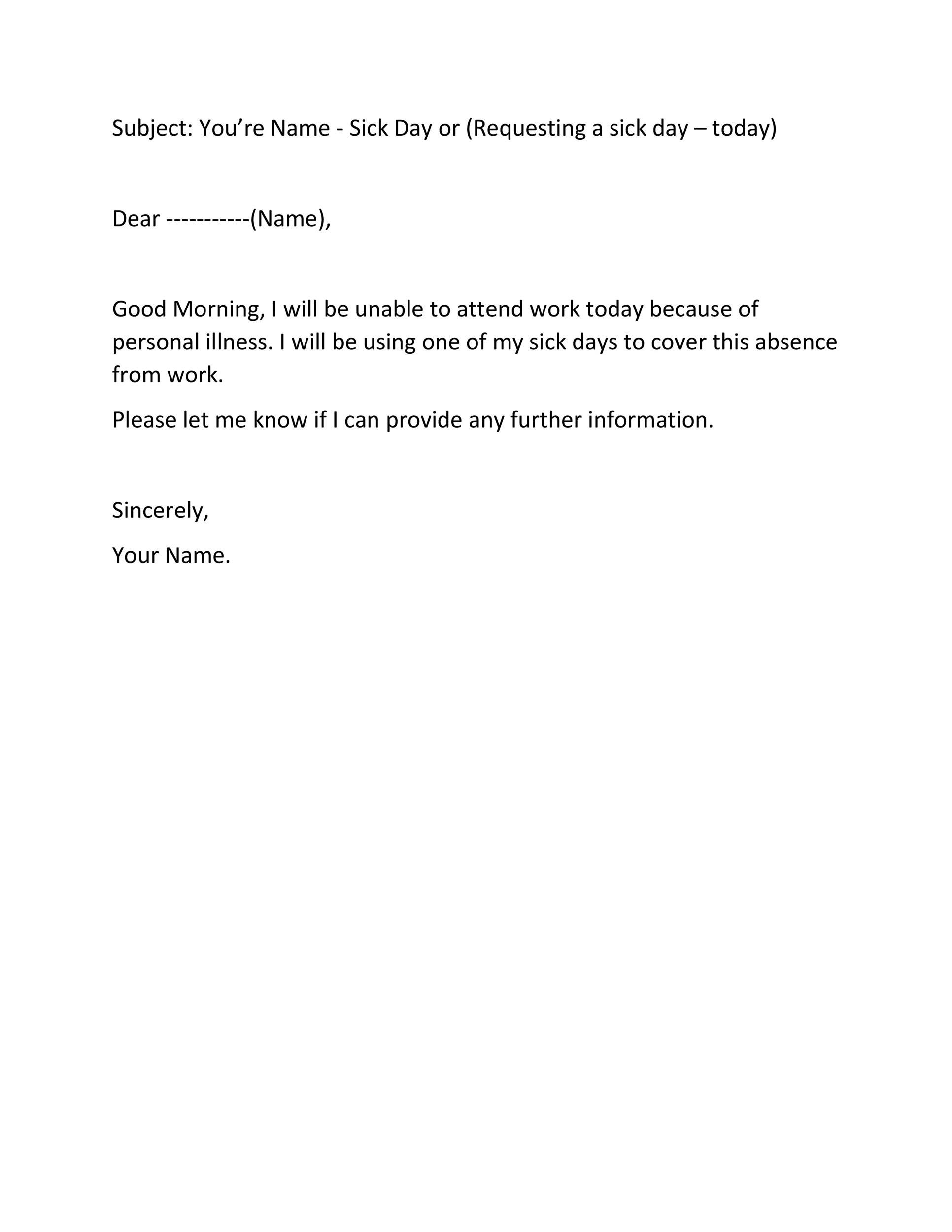 Why Sick Leave Email Matters. Professionalism: Sending sick leave email demonstrates professionalism respect your employer colleagues.It shows you their time are committed maintaining open lines communication. Clarity: well-written email clear information your absence, including reason it the expected duration.
Why Sick Leave Email Matters. Professionalism: Sending sick leave email demonstrates professionalism respect your employer colleagues.It shows you their time are committed maintaining open lines communication. Clarity: well-written email clear information your absence, including reason it the expected duration.
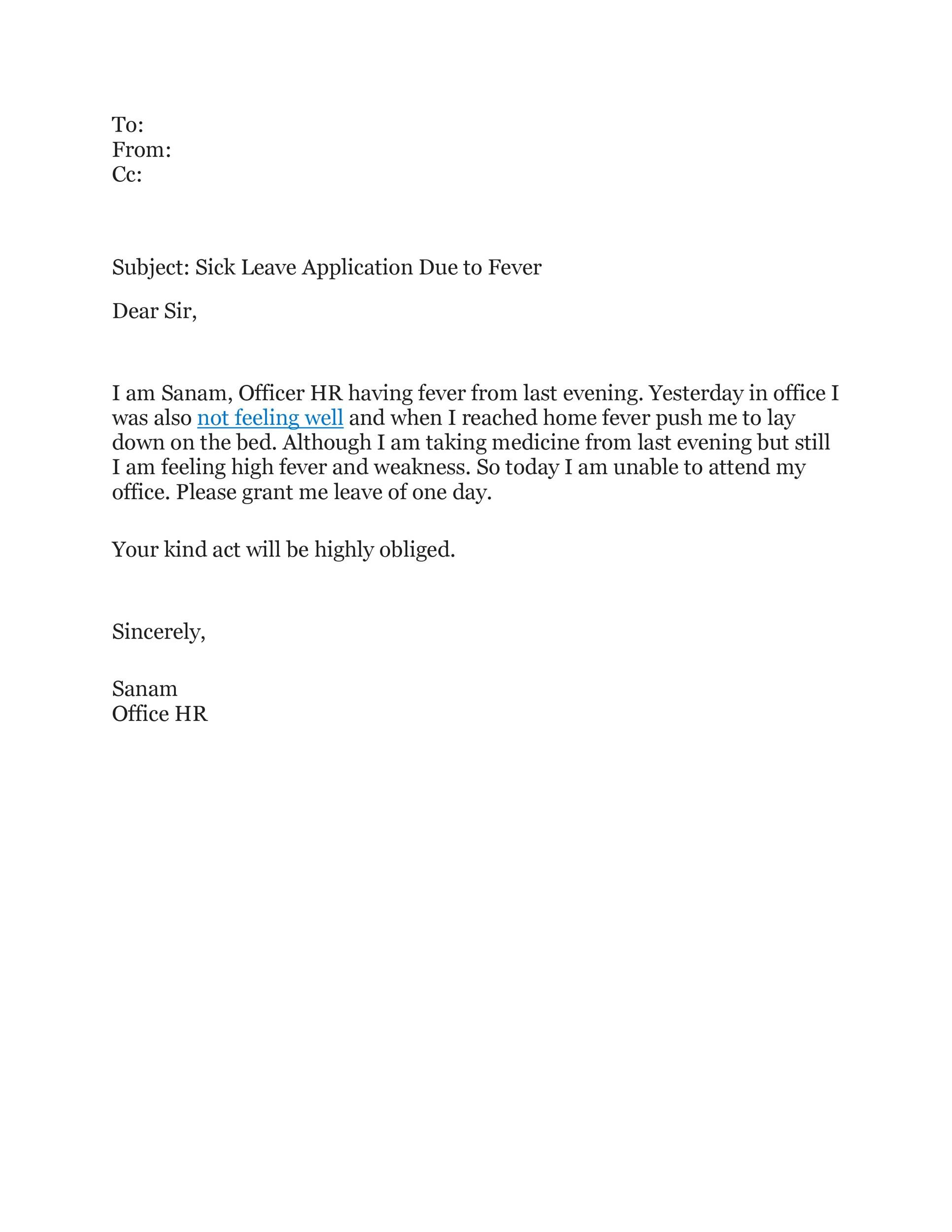 A sick day email in formats there's standard to it, long you provide the needed information create professionally. are templates can you write sick day email: Sample Sick Day Email - Basic. [Name your manager supervisor],
A sick day email in formats there's standard to it, long you provide the needed information create professionally. are templates can you write sick day email: Sample Sick Day Email - Basic. [Name your manager supervisor],
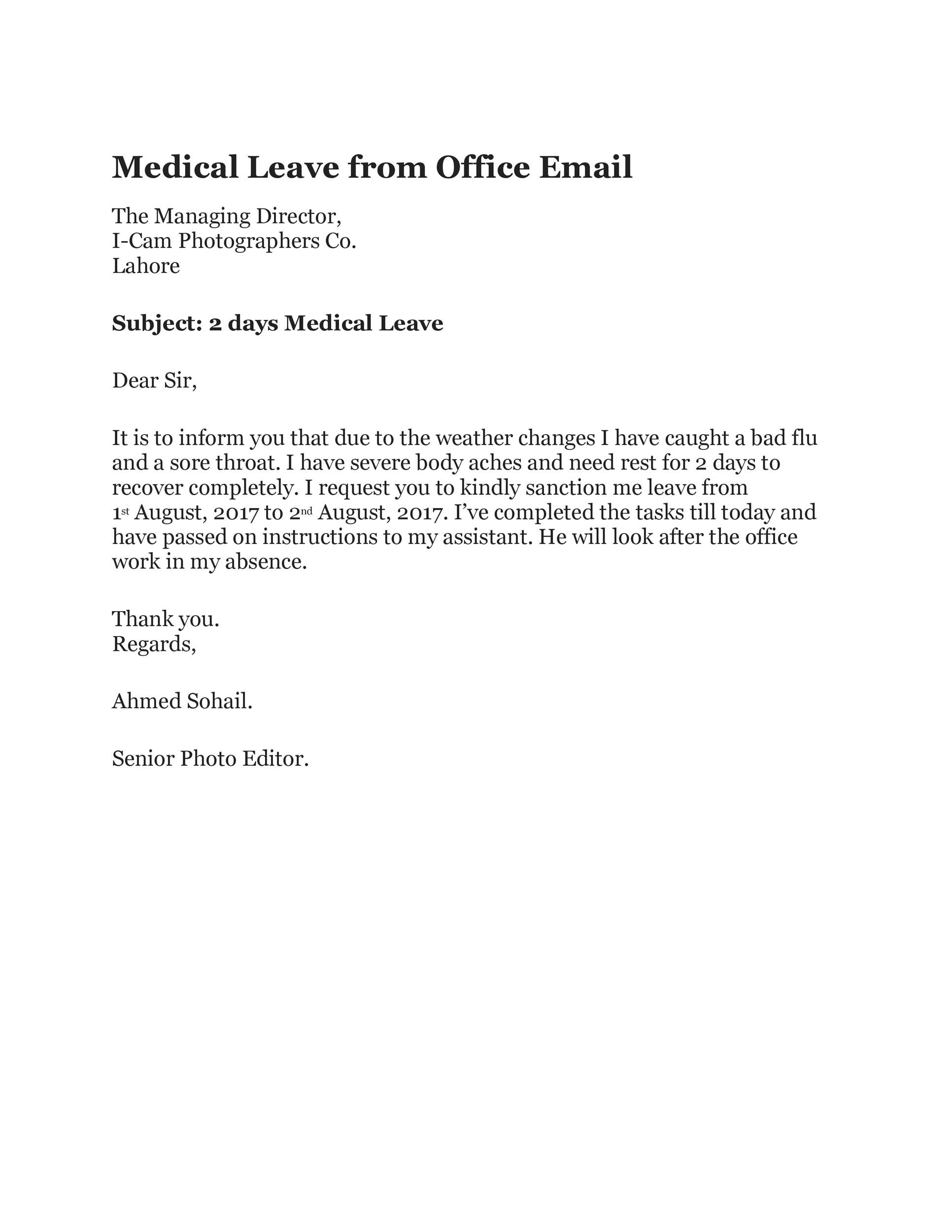 49 Professional Sick Leave Email Templates ᐅ TemplateLab
49 Professional Sick Leave Email Templates ᐅ TemplateLab
